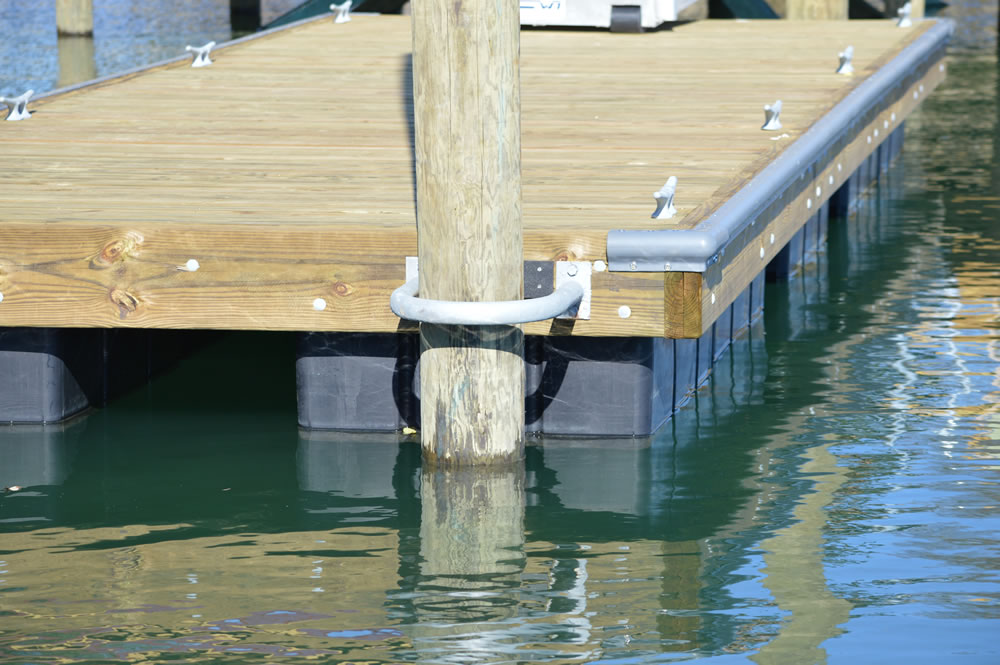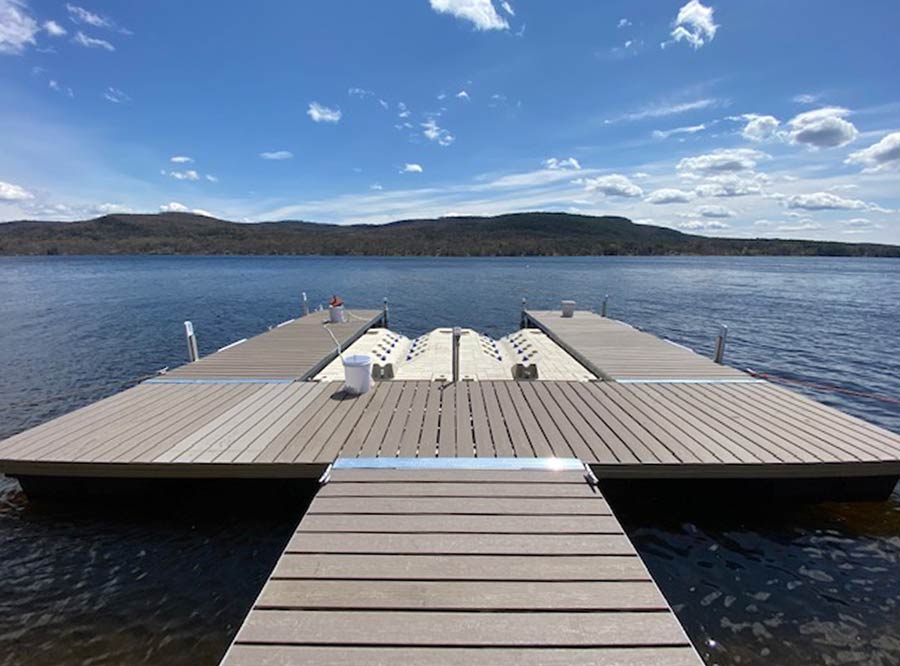The Ultimate Overview to Choosing the most effective Floating Docks
Selecting the perfect floating dock needs a detailed understanding of various aspects that affect both performance and long life. Elements such as dock kinds, materials, and necessary attributes dramatically influence your decision-making process. Additionally, factors to consider around setup and budget can additionally complicate the option. By examining these elements methodically, one can ensure an investment that not just meets instant demands however additionally boosts overall home worth. As we check out these vital components, it comes to be clear that the ideal selections can cause a useful and enduring remedy tailored to your details demands.
Understanding Floating Dock Kind
When choosing a floating dock, it is vital to comprehend the numerous types available, as each serves unique purposes and applications. Floating docks largely come under three groups: modular, fixed, and pontoon docks.
Modular docks are composed of individual areas that can be conveniently set up or reconfigured, making them optimal for altering water degrees and diverse uses, such as industrial operations or leisure tasks. Their adaptability permits customization based on details requirements.

Pontoon docks are characterized by their buoyant structure, typically composed of numerous pontoons that provide security and assistance. They are specifically well-suited for larger vessels and are commonly used in marinas or for waterside buildings. Recognizing these kinds help in selecting one of the most proper floating dock to fulfill specific needs, making sure optimal performance and safety.
Trick Materials for Resilience
Selecting the appropriate materials for floating docks substantially effects their sturdiness and durability. The most usual products consist of timber, plastic, metal, and composite materials, each offering distinctive advantages and constraints.
Wood, usually preferred for its aesthetic charm, needs normal upkeep to withstand moisture and degeneration. Pressure-treated lumber can enhance resistance to rot, however it might still be susceptible to parasites and weathering.

Plastic docks, made from high-density polyethylene (HDPE), are resistant to corrosion, UV radiation, and impact, making them a popular choice for seaside environments. Their lightweight nature also helps with simple installment and relocation.
Steel docks, generally built from aluminum or galvanized steel, give exceptional stamina and resilience. They are resistant to deterioration, particularly when dealt with, however might require added insulation to stop heat buildup in hot climates.
Composite products, integrating timber fibers and plastics, provide the advantages of both wood and plastic, withstanding dampness and fading while needing marginal maintenance. - floating docks
Eventually, the selection of materials must straighten with environmental conditions, planned usage, and maintenance preferences to make certain the floating dock remains practical and cosmetically pleasing over time.
Necessary Attributes to Consider
While the option of products is critical, considering vital attributes for floating docks is equally essential to make sure optimum efficiency and customer contentment. One vital attribute to assess is the dock's buoyancy capacity, which identifies just how much weight it can sustain without immersing. floating docks. This is vital for accommodating boats, personal watercraft, and even recreational activities
Additionally, portability is a significant consideration. Depending on your needs, you might desire a dock that is very easy to dismantle and move, particularly if you plan to transfer it seasonally. Security is an additional necessary function; a well-designed this hyperlink floating dock should minimize activity brought on by wind and water currents, supplying a safe platform for users.
Safety attributes, such as non-slip surface areas and rounded edges, are likewise critical to avoid crashes, particularly in damp conditions. Additionally, consider the availability of devices, such as bumpers, cleats, and ladders, which can boost the capability of your dock.
Setup and Upkeep Tips
Establishing and keeping a floating dock requires cautious preparation and interest to information to ensure its long life and ideal efficiency. Begin by selecting an ideal location that decreases exposure to solid currents and waves, which can cause deterioration. Ensure that the water deepness is sufficient for the dock's height which it is anchored safely to stop movement.
Throughout installation, comply with the supplier's guidelines carefully, as inappropriate assembly can jeopardize security. Usage premium products resistant to rust, such as light weight aluminum or dealt with wood, to improve longevity. Frequently evaluate all components, including floats, adapters, and securing systems, for signs of damage or wear.
Maintenance is critical for extending the life of your dock. Clean the surfaces regularly to avoid algae buildup and check for any type of loosened installations that might call for tightening. Guarantee they continue to be free and intact from punctures if your dock utilizes flotation gadgets. Furthermore, think about using safety layers to wood parts to minimize weathering results. By sticking to these setup and maintenance ideas, you can take pleasure in a useful Visit Website and reputable floating dock for many years to come.
Budgeting for Your Dock
Budgeting for your dock is a critical step that can considerably affect your overall fulfillment and investment in a waterfront property. Developing a clear budget plan helps you browse the various alternatives offered and ensures you make informed choices that line up with your economic abilities.
Begin by identifying the dimension and style of the dock you call for, as these elements will greatly affect the cost. Floating docks can vary significantly in cost, depending on materials, buoyancy, and attributes like ramps and devices. Research study various producers and distributors to compare costs and understand the market worth.
In addition to preliminary costs, think about recurring expenses such as upkeep, insurance, and prospective fixings. Assign funds for these reoccuring costs to prevent shocks down the line. It's also prudent to budget plan for any kind of required licenses or examinations, which may be needed by neighborhood regulations.
Finally, remember the possible roi. A well-planned dock can boost your residential or commercial property's value and charm, giving a positive financial effect in the long you could try these out term. By budgeting properly, you can ensure that your dock meets your needs without jeopardizing your economic security.
Final Thought
To conclude, picking the ideal floating dock demands a thorough evaluation of numerous variables, consisting of dock types, materials, important features, and installment procedures. Prioritizing sturdiness and compliance with local laws eventually improves functionality and property worth. Mindful consideration of budgetary restraints will certainly even more ensure an audio investment. By adhering to these standards, individuals can make enlightened choices that promote long-lasting complete satisfaction and use in marine atmospheres.

While the selection of products is crucial, thinking about necessary attributes for floating docks is just as important to ensure optimal performance and user complete satisfaction.Setting up and preserving a floating dock requires cautious planning and interest to detail to ensure its longevity and optimal efficiency. Floating docks can differ dramatically in rate, depending on products, buoyancy, and attributes like devices and ramps.In verdict, choosing the excellent floating dock demands a detailed analysis of numerous aspects, consisting of dock types, materials, important features, and installation processes.